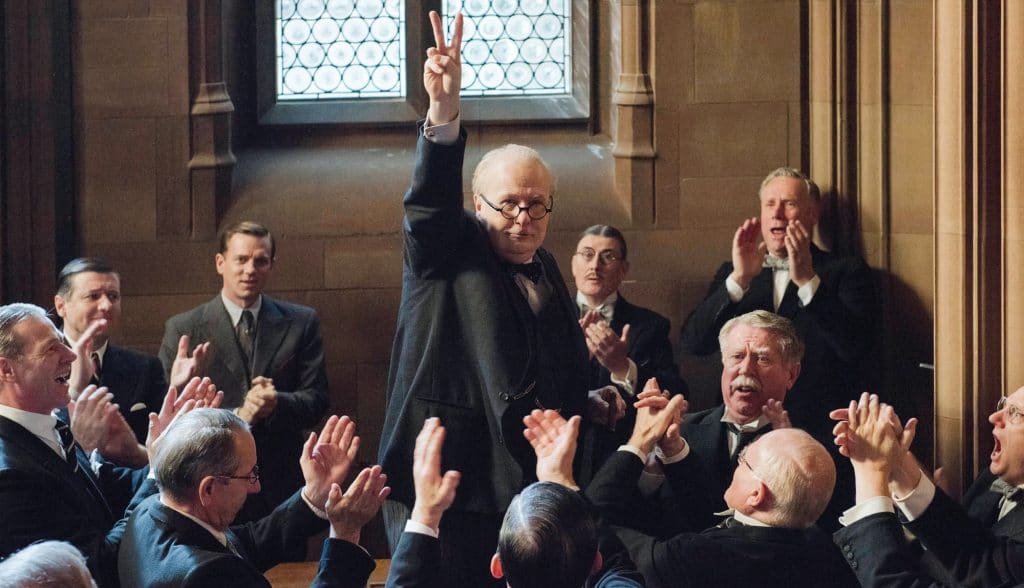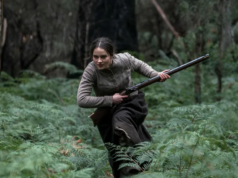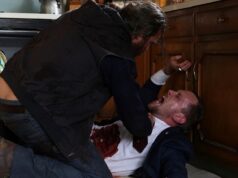Gary Oldman delivers another great performance but in a superficial film that doesn’t even try to escape the typical clichés found in so many biographies
Darkest Hour (2017)
Directed by Joe Wright. Written by Anthony McCarten. Starring Gary Oldman, Kristin Scott Thomas, Lily James, Ben Mendelsohn, Stephen Dillane, Ronald Pickup, Nicholas Jones, Samuel West, David Schofield, Richard Lumsden, Malcolm Storry, Hilton McRae and Benjamin Whitrow.
If there is something one can assume when watching Darkest Hour, it is that those involved in the project must have thought it should be made as dark as possible. And I mean, literally dark. In fact, in this sober fictionalized account of Winston Churchill’s first three weeks as Prime Minister of the United Kingdom, nearly every room on screen is so dimly lit that I cannot believe anyone would be able to see anything in front of their noses and not just stumble over one another all the time.
These kinds of clichéd aesthetics are nothing new and can be found in a lot of self-important biopics that aim at a certain baroque solemnity, with rooms filled with smoke so that the beams of sunlight are visible coming in through the windows. Yes, it is an artistic choice, but it looks cheesy when people are supposed to be reading, writing, typing, or even seeing each other as they discuss the fate of their nation. At one point, when Churchill visits King George VI in broad daylight, all windows of Buckingham are half covered and the palace looks like a cave, so poorly illuminated that it made me wonder if the king suffered from some undisclosed case of photophobia.
While this is disappointing enough considering that the cinematographer in case is the talented Bruno Delbonnel (Amélie, Inside Llewyn Davis), the clichés in Darkest Hour are not only of a technical nature. On the one hand, one of the film’s qualities is how director Joe Wright (Pride & Prejudice, Atonement) builds tension from the pressure that Churchill undergoes knowing that his decisions will affect the course of history. By this point, Adolf Hitler had already invaded half of Europe and is ready to conquer the rest. Now, the entire nation expects Churchill to find a way to end the war after having lost their faith in the previous Prime Minister, Neville Chamberlain (Ronald Pickup).
Beginning on May 9, 1940, only one day before Chamberlain resigns and Churchill (Gary Oldman) takes over, Darkest Hour depicts how the new PM was no one’s first choice (the Lords wanted Halifax, the Lord President of the Council, but he declined) and focuses on how he was regarded with doubt by nearly everyone for being against peace negotiations with Hitler and only talking about raging war — as opposed to Halifax (Stephen Dillane). With the country virtually alone at this stage of the war (the U.S. couldn’t care less due to the Neutrality Acts), Churchill is also pressed to come up with a solution to evacuate 300,000 British soldiers trapped in Dunkirk between the Nazis and the ocean.
As the film dives into the winding roads of rhetoric, we are pulled into a universe of words and speeches. But the plot structure is conventional and superficial, just like in screenwriter Anthony McCarten’s overrated The Theory of Everything (2014). Here, the typist Elizabeth (Lily James) serves the sole function of being our door into a narrative that relies on as much exposition as possible, even in the most implausible moments — like when Churchill takes Elizabeth on a guided tour through the details of his rescue operation so that everything is properly explained to the audience as well. Likewise, Kristin Scott Thomas is completely wasted as Churchill’s supportive wife Clemmie.
Described at some point as “an actor in love with the sound of his own voice,” Churchill is depicted as an eccentric, grumpy old man who may be a pragmatic politician and great orator but is seen drinking whiskey for breakfast, mumbling to himself and never mincing words when talking to someone. Gary Oldman embraces the character with an unbelievable intensity under tons of makeup that make him absolutely unrecognizable, which, combined with his impressively accurate mannerisms and larger-than-life performance, has Oscar written everywhere — especially whenever Churchill loses his temper defending a “noble” decision that only few are able to understand or accept.
On the other hand, Wright can be quite predictable and obvious in his approach as well, like when he tries to create a rhyme between a couple of shots that move from a person’s face all the way up to the clouds. But the worst mistake Darkest Hour makes is with a terrible scene that shows Churchill in a very questionable light, when he decides the fate of the entire nation by talking to a group of people who are not aware of what is actually happening. It is enraging to see him present them with a “hypothetical” scenario that they can bravely refuse before moving on to a bureaucratic series of speeches that should miraculously make everyone see him as a hero from now on.
In other words, besides being aesthetically irritating and full of clichés, this is a superficial biopic that doesn’t even understand the moral implications of what it shows. At least Gary Oldman makes it entertaining enough with another excellent performance in a career full of many.





